Promoting the Freedom of Religion and Belief Through the Inclusion of Religious Minorities in Peacebuilding
Inclusivity | March 2024
The term “religious minorities” encompasses a broad range of religious communities, traditional and non-traditional, acknowledged by the State or not, large and small – the diversity that exists within minority groups must be recognized. Participation of minorities in various areas of life is essential for the development of a truly inclusive society.
When Starting the Meeting
On Tuesday, March 26, the Peacemakers Network hosted its first Inclusivity-based Community of Practice meeting of 2024, “Promoting the Freedom of Religion and Belief Through the Inclusion of Religious Minorities in Peacebuilding.” In case you missed the meeting or want to review key highlights, you can find a recording of the event here.
The Network’s Senior Specialist on Inclusive Peace, Jessica Roland, began the meeting by welcoming the 96 participants in attendance, introducing the 2024 Steering Committee members and providing an overview of the agenda. The discussion then went into a set of guest presentations.
The Network’s UN Representative and Adviser on Religion and Development, Siam Tooran, opened the presentations by introducing the Joint Initiative for Strategic Religious Action (JISRA) project, which focuses on the Freedom of Relief or Belief (FoRB) in Iraq, Ethiopia, Indonesia, Kenya, Mali, Nigeria and Uganda. The JISRA project is an international, interreligious partnership that began in 2021 and will extend through 2025 in partnership with over 50 civil society organizations, including the Peacemakers Network, and the Dutch Ministry of Foreign Affairs. Tooran highlighted that there would be three upcoming consultations on topics related to advancing the role of religious minorities in peacebuilding before passing the discussion to three different JISRA partners to speak about their ongoing work in the partnership.
Introducing FoRB Within Country Context
[MALI] First, Seybou Sultan, JISRA Mali Consortium Country Coordinator at Search for Common Ground spoke about the Malian context where 95% of citizens are Muslim, 2.5% are Christians and 2.5% are folk religions. He explained that while there are continued threats of terrorism, violent extremist activities and broader insecurity in the country, the Freedom of Religion or Beliefs is guaranteed by the Constitution. Sultan further explained that in practice, there is still a slow pace of implementation around relevant ForB policies due to traditional beliefs. Sultan highlighted that through the JISRA project, intra and interreligious dialogues and consultations are held to explore common goals and challenges in various religious communities in order to reduce mistrust and increase cooperation, as well as trainings and advocacy events to transform faith actors’ skills in conflict transformation, religious engagement and mediation. Implementing these activities, Sultan notes, has caused a positive shift in how the community approaches social cohesion.
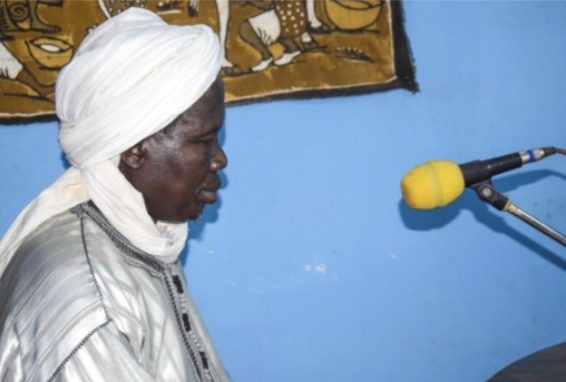
In the center of Mali, a religious leader changed the content of his radio show to religious tolerance and collaboration which was focusing on Islam and its great men. Photo source: powerpoint from Seybou Sultan.
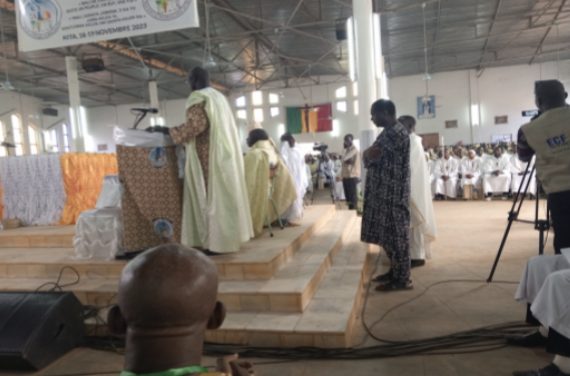
During the 52nd National Pilgrimage of the Catholic community of Mali to Rita on November 18 and 19, 2023, an evangelical pastor and an imam intervened to exhort all the faiths of Mali to unity and social cohesion in the presence of Apostolic Nuncio of Mali (the Pope’s representative to the Malian State). This is the first time in Mali’s history that this has happened which is shown through great support and actions of the JISRA project through the Mopti inter-religious framework. Photo source: powerpoint from Seybou Sultan.
[INDONESIA] The conversation then shifted to Hening Purwati, National Coordinator for Muhammadiyah or Green Faith in Indonesia and also part of the JISRA project, who highlighted their ‘Eco Bhinneka’ project focused on promoting FoRB through an environmental conservation approach. Purwati highlighted several key lessons learned from the project, including: 1) the importance of socialization of harmony and environmental program ideas to build mutual understanding; 2) finding the right resources; 3) increasing the capacity of activity stakeholders; 4) asking for the blessing of local leadership; 5) expanding to other networks; and 6) gaining support from other groups and the government through joint activities and actions.
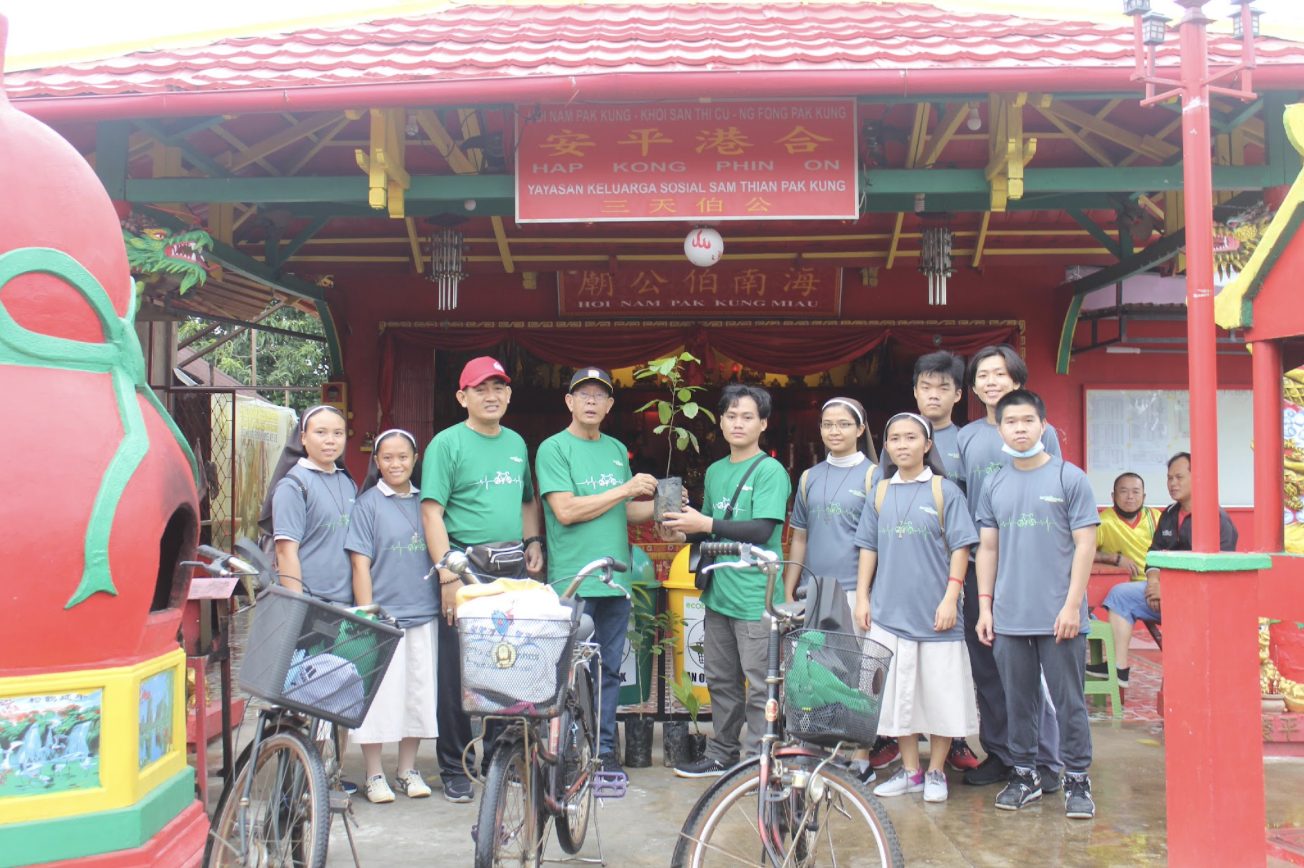
Cycling to religious sites: at the end of 2022, 500 young people were moved to Plant Trees and then participate in cycling to visit houses of worship. The cycling activity started at the Pontianak Grand Mosque by the Governor of Wes Kalimantan and then to Protestant Christian Churches, Viharas, Temples, and Catholic Churches. Learn more here. Photo source: powerpoint from Hening Purwati.
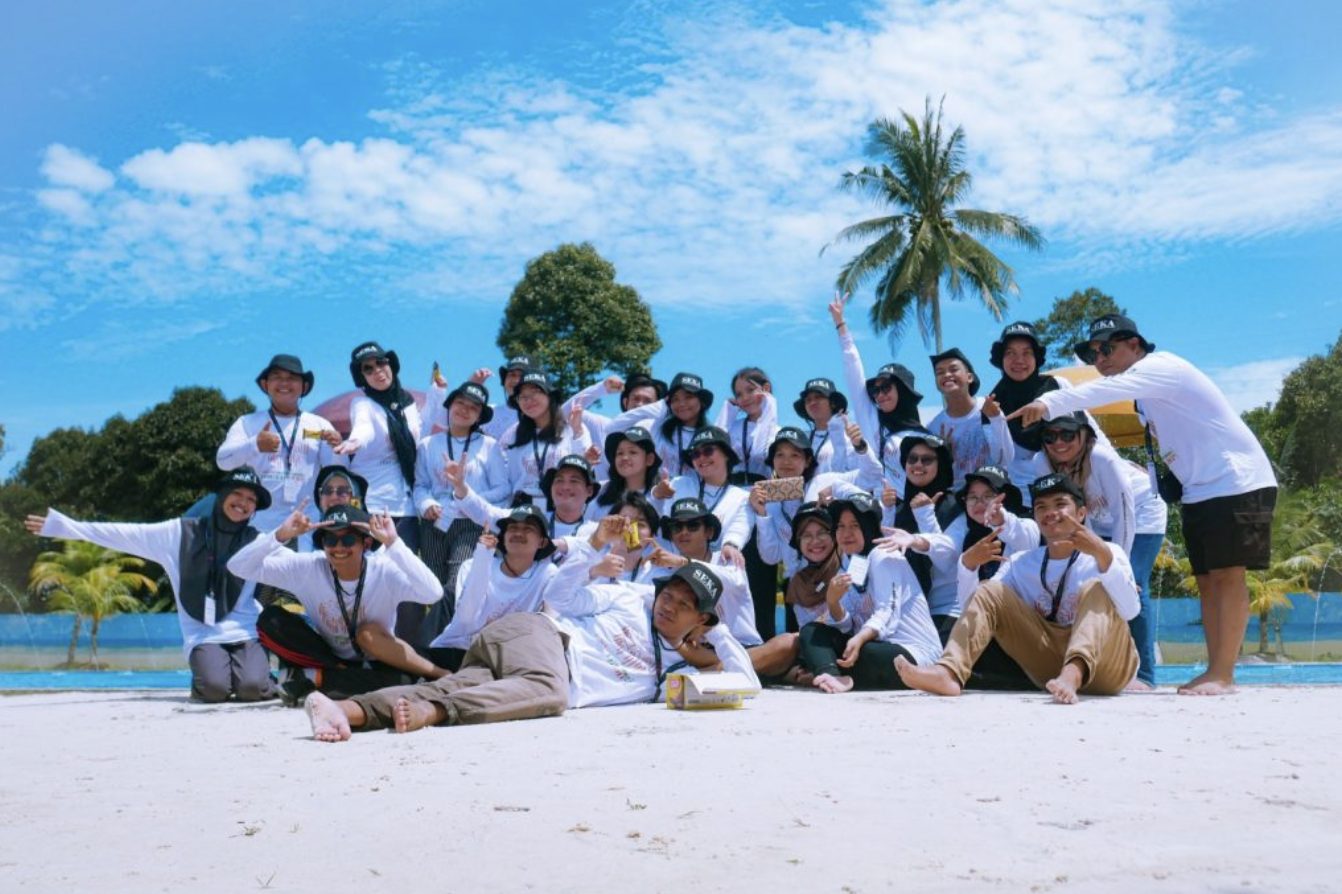
This photo was taken during the 12-14 May 2023 Eco Bhinneka Youth Camp Maintaining Tolerance, Caring for Sustainability in Singkawang City, West Kalimantan. It was attended by 29 interfaith youth and environmental activists in Pontianak City. Photo source: powerpoint from Hening Purwati.
[INDONESIA] The discussion then turned to a final JISRA partner, Irfan Amali, Co-Founder and Director of PeaceGeneration in Indonesia, who highlighted the negative impacts that government action on banning certain beliefs and practices has had on the country. These negative impacts include an increase in violence, intolerance and violations in worship spaces in local communities. Amali then highlighted the PeaceGeneration program called ‘Breaking Down the Wall’s’ which aims to bring people from different groups together to reduce prejudice and intolerance. This is a training of trainers program that engages teachers and their students through virtual reality and board games to promote mutual understanding.
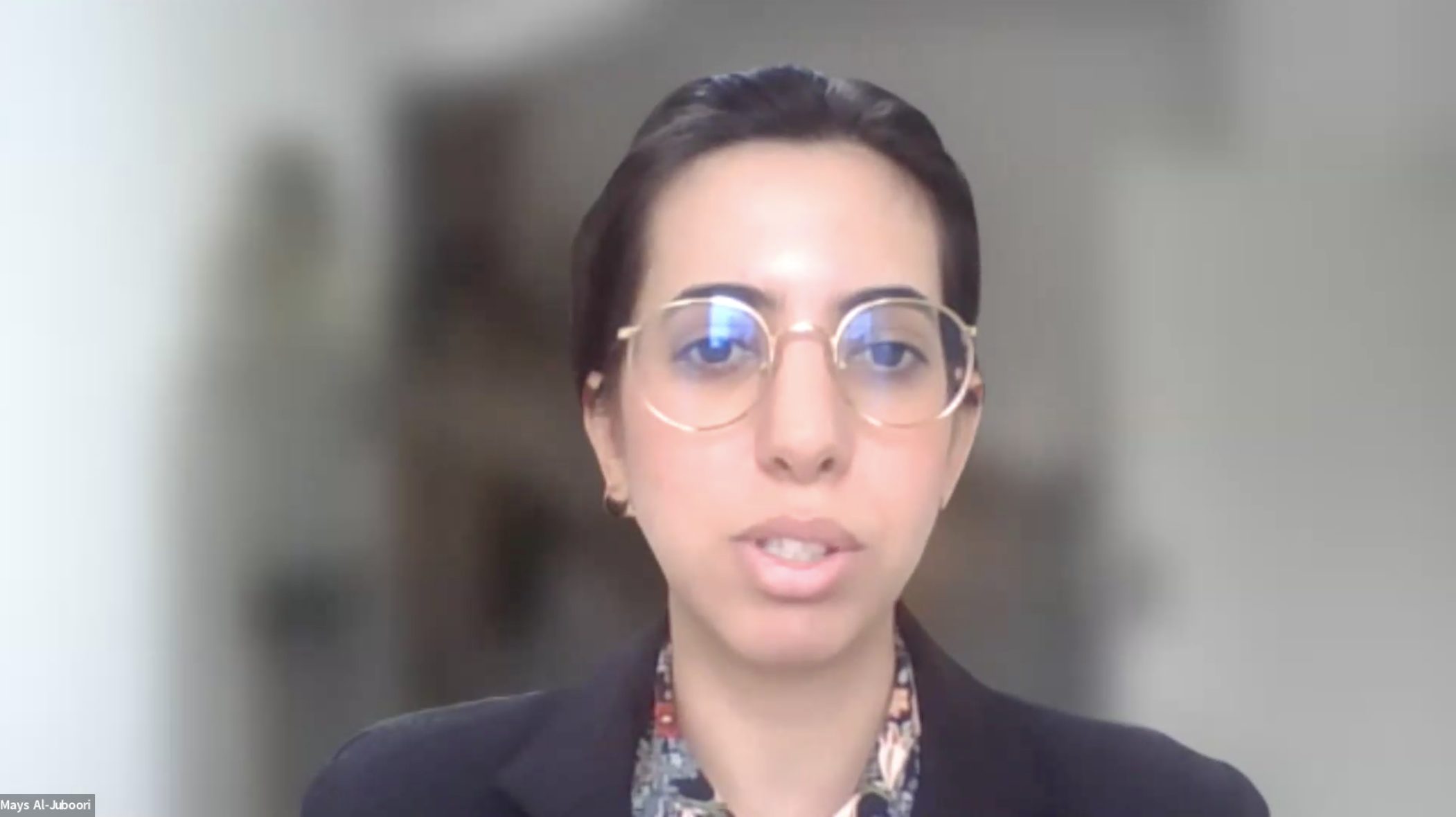
[IRAQ] A final presentation was then given by Mays Al-Juboori, Senior Middle East Officer for the Minority Rights Group Project, who focused on their Iraq program. In the Iraq context, the conflict with ISIS resulted in six million people in the country displaced. In order to reduce the environment of marginalization, their project focused on: 1) building local skills on gathering and storing evidence for justice councils in the future; 2) creating secure online reporting platforms for communities who are inaccessible within conflict zones; 3) producing online hubs of information for the international community on how to reach and protect minority group areas; and 4) working with activities to help with security and emergency support.
Addressing Challenges and Best Practices to Advance the Inclusion of Religious Minorities
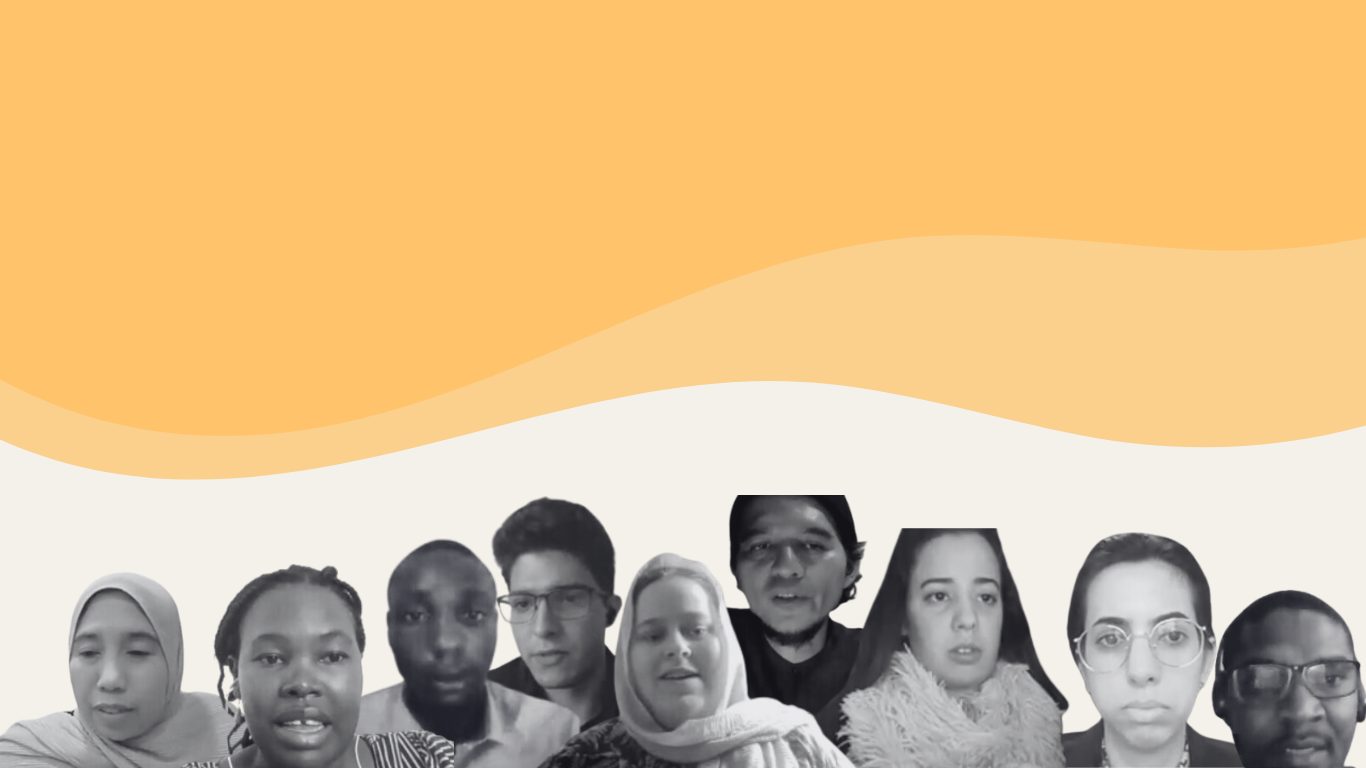
The meeting then held a fireside chat with moderator Victor Okechukwu Chimezie, Founder and Team Leader at the Mind Reformers Network, with speakers Abdelaziz Antar, Communications Manager at Attalaki, Mary Maina, Kenya Focal Point at Mensen Met een Missie and Aashiq Alabeen, Chief Executive Officer at the Serving Humanity Foundation. All speakers raised how they are promoting the inclusion of religious minorities within their work.
Within the discussion, Antar focused on his context of Tunisia, where Muslims are the majority and Christians the minority. Antar highlighted that Attalaki utilizes a social sensitive approach to their work through framing that religious minorities are not marginalized but rather they require additional resources and support to be included in engagement. Antar also highlighted that they promote FoRB in their work through virtual outreach, including documentaries and videos, and through promoting gender equality.
Maina then highlighted her context of Kenya, where the majority population is Christian and the minority are Muslims and indigenous beliefs. Maina highlighted her work in Kenya working with interfaith clergy councils and working with traditional leaders around peacebuilding efforts, but also highlighted the challenges of a lack of religious literacy and unpacking the importance of being inclusive and understanding the needs and challenges of religious minorities.
Finally, Albadeen focused on his work in Sri Lanka, where the majority population is Buddhist and the minority are Muslims and Christians. Albadeen highlighted their work focused on capacity-building around mediation techniques and opportunities to create exchange visits between different religious groups, but also raised the critical challenges of lack of funding for the work in this area and not having enough capacity to provide training to community groups.
The discussion then moved into breakout groups for everyone present in the meeting to be able to share how they are promoting the inclusion of religious minorities, while addressing key challenges surrounding their prospective work. Based on the group discussions, below are key examples that others can build upon.
Follow the Network on social
